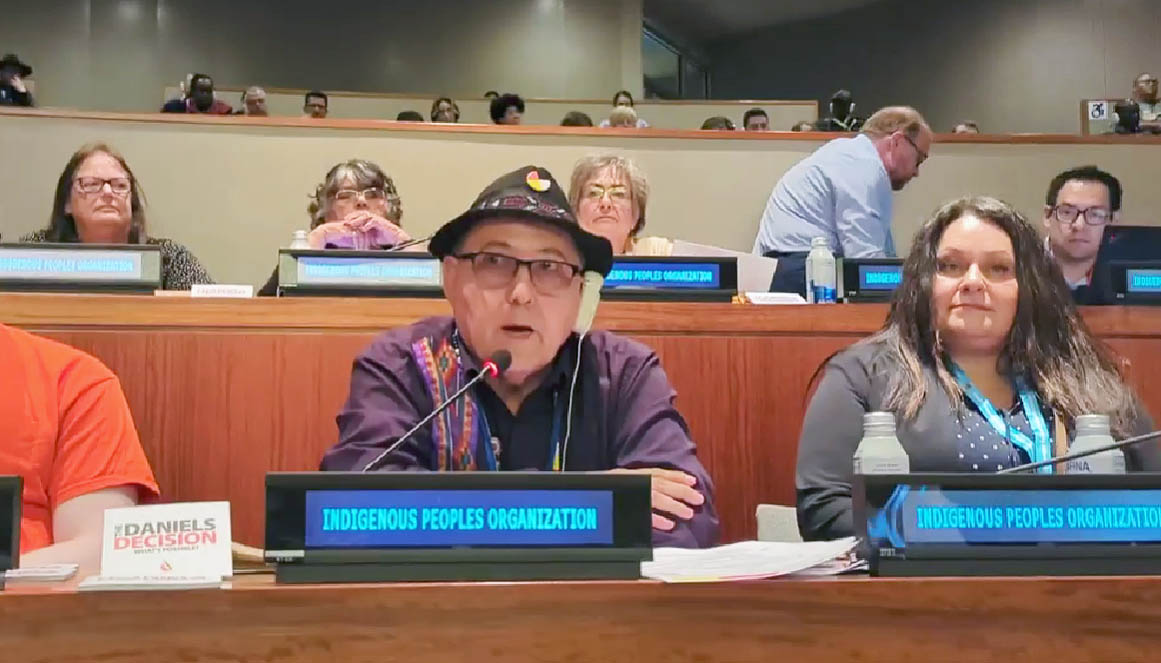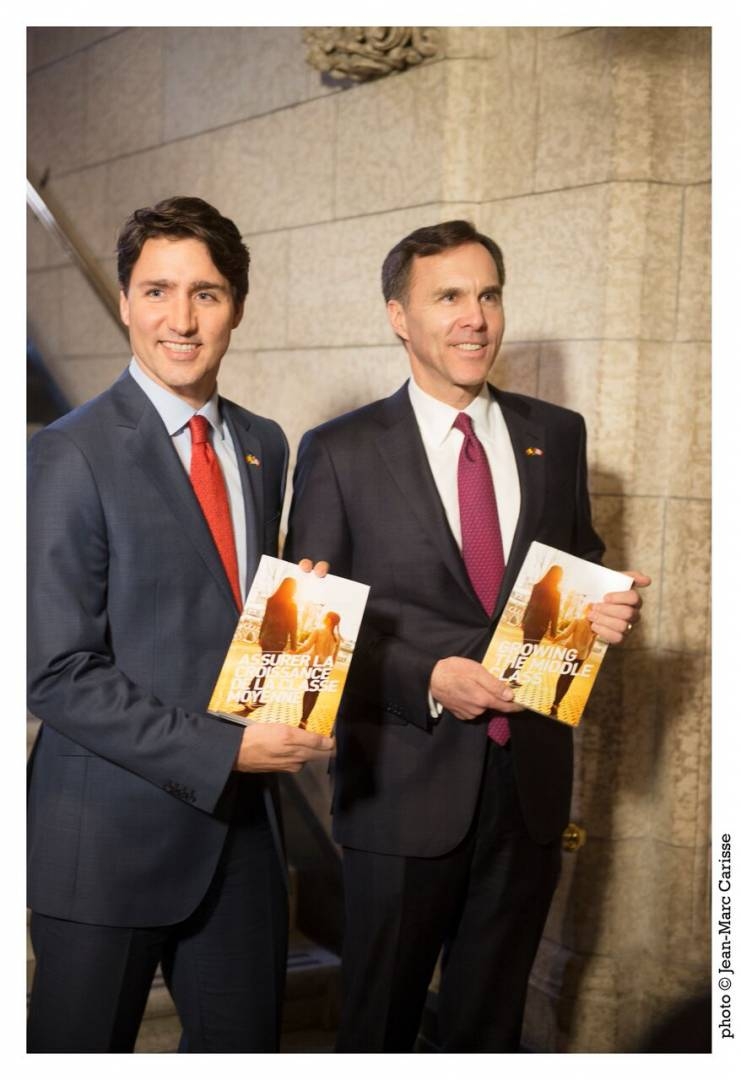
Congress of Aboriginal Peoples Calls on Indigenous Relations Minister Marc Miller to Resign
ABOVE: National Vice-Chief Kim Beaudin (centre) speaking at the United Nations Permanent Forum on Indigenous Issues in April 2023 to raise critical discrimination issues against CAP communities in Canada.
Despite celebrating the inaugural National First Peoples Month in Canada, the Congress of Aboriginal Peoples (CAP), which represents First Nations, Indigenous, Métis, and Inuit peoples living off-reserve in Canada, is expressing extreme frustration with the Liberal government.
Currently, 70 percent of First Nations people in Canada live on reservations. CAP aims to represent and better the livelihoods of First Nations people across the country who do not live on their sovereign band territory.
The group is taking aim at the Trudeau government’s policies. National Chief Elmer St. Pierre spoke to the way the group and urban and off-reserve First Nations residents have been treated by the government calling the policies of the federal government one of partisanship and division and saying, “The government’s own statistics clearly show the majority of Indigenous people now live off-reserve and in urban and rural areas. Despite their growing needs, Indigenous people living in cities and rural areas struggle to find the same supports as those living on-reserve or in northern settlements.”
The most direct criticism of the government was reserved for Minister of Crown-Indigenous Relations Marc Miller. Although the current federal government frequently speaks to the need for reconciliation with gestures such as raising flags to honour residential school survivors, the group says the minister has decided to exclude CAP and, by extension, urban Indigenous voices from the proposed National Reconciliation Council and Canada’s UNDRIP (United Nations Declaration on the Rights of Indigenous Peoples) action plan.
This is not the first time the Minister has actively snubbed CAP. Minister Miller credited another organization with the precedence-setting CAP/Daniels case that marked a change of course for Aboriginal-federal government affairs. On April 16, 2016, the Supreme Court of Canada ruled that the federal government, not the provinces, had the sole legal responsibility to legislate policy for non-status Aboriginals and Métis peoples in Canada.
Despite not granting status to these groups, the unanimous Supreme Court decision has opened the door to future more inclusive policies related to non-status and Métis peoples and the services the federal government may have to provide.
By not noting the CAP’s critical role in the case, the group feels Minister Miller has continued a policy of ignoring the organization, the hard work done by its former Chief, Harry Daniels, who spearheaded the 17-year-long legal battle and, by extension, the hundreds of thousands of First Nations people in the country who live outside the reserve system.
The group concluded its statement by expressing its profound disappointment with the current Liberal government and Minister Marc Miller. They point out that reconciliation can only begin when everybody in the First Nations community across Canada is included.
National Vice-Chief Kim Beaudin stated: “Whether the comment was an insult or lack of knowledge, the Minister has consistently displayed his intentions to dismiss our people and divide our communities based on where they live.”
Rather than seeking an apology or a cabinet shuffle, Beaudin made it clear that the CAP believes Miller must go. “He must step down and allow for new leadership that will approach our issues in an inclusive way. Life is not getting better for our people, and serious change is needed.”









